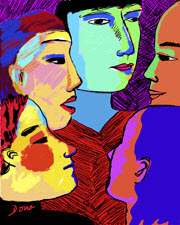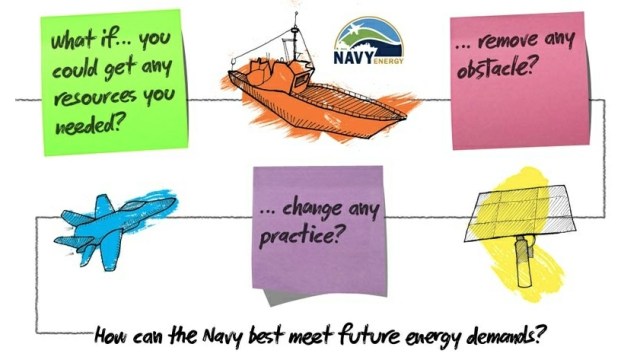Sign up for Big Think on Substack
The most surprising and impactful new stories delivered to your inbox every week, for free.
On Tuesday, May 22, I will be delivering a lecture as part of the National Academies’ Sackler Colloquium on the “Science of Science Communication,” reviewing the role of the media in science policy debates. Below I have included a reading list specific to key subjects covered.
UPDATE: The video of the lecture along with those of my fellow panelists Dominique Brossard and William Eveland is now available online. I have also posted online the slides for download.
Overviews on Communication and Science Policy Debates
Nisbet, M.C. & Scheufele, D.A. (2009). What’s Next for Science Communication? Promising Directions and Lingering Distractions. American Journal of Botany, 96 (10), 1767-1778. (PDF).
Nisbet, M.C. (2010). Civic Education About Climate Change: Opinion-Leaders, Communication Infrastructure, and Participatory Culture. Commissioned White Paper in support of the National Academies Roundtable on Climate Change Education. Washington. [PDF]
Brossard, D., & Lewenstein, B. V. (2009). A Critical Appraisal of Models of Public Understanding of Science: Using Practice to Inform Theory. In L. Kahlor & P. Stout (Eds.), Communicating Science: New Agendas in Communication (pp. 11-39). New York: Routledge. [Google Books Excerpt]
Agenda-Setting and Framing Effects on News Audiences
Nisbet, M.C. & Feldman, L. (2011). The Social Psychology of Political Communication. In D. Hook, B. Franks and M. Bauer (Eds.), The Social Psychology of Communication. London: Palgrave Macmillan. [PDF]
Scheufele, D. A. (2000). Agenda-setting, priming, and framing revisited: Another look at cognitive effects of political communication. Mass Communication & Society, 3 (2), 297-316. [Abstract].
Scheufele, D. A. (1999). Framing as a theory of media effects. Journal of Communication, 49(1), 103-122. [PDF]
Scheufele, D.A. & Iyengar, S. (forthcoming). The State of Framing Research: A Call for New Directions. InThe Oxford Handbook of Political Communication. New York: Oxford University Press. [PDF]
Agenda-Building, Frame-Building, and Journalistic Decisions
Nisbet, M.C. (2008). Agenda-Building. In W. Donsbach (Ed.), International Encyclopedia of Communication. New York: Blackwell Publishing. [PDF]
McComas, K., & Shanahan, J. (1999). Telling stories about global climate change. Communication Research, 26(1),30.
Nisbet, M. C., Brossard, D., & Kroepsch, A. (2003). Framing Science: The Stem Cell Controversy in an Age of Press/Politics. Harvard International Journal of Press/Politics,8(2), 36-70. [PDF]
Nisbet, M., & Huge, M. (2007). Where do science debates come from? Understanding attention cycles and framing. The media, the public, and agricultural biotechnology, 193–230. [PDF].
Lewenstein, Bruce V. 1995. Science and the Media. In Handbook of Science and Technology Studies, edited by S. Jasanoff, G. E. Markle, J. G. Petersen and T. Pinch. Thousand Oaks, Calif.: Sage. [Google Books excerpt]
Fahy, J. & Nisbet, M.C. (2011). The Science Journalist Online: Shifting Roles and Emerging Practices. Journalism: Theory, Practice & Criticism. [HTML].
Perceptions and Analysis of False Balance in Science Coverage
Eveland, W. P., Jr., & Shah, D. V. (2003). The impact of individual and interpersonal factors on perceived news media bias. Political Psychology, 24, 101-117. [PDF]
Besley, J. & Nisbet, M.C. (2011). How Scientists View the Media, the Public and the Political Process. Public Understanding of Science. [PDF].
Boykoff, M. & Boykoff, J. (2004). Balance as Bias: Global Warming and the U.S. Prestige Press. Global Environmental Change Vol. 15: No. 2 : 125-136.[PDF]
Boykoff, M. (2007). Flogging a Dead Norm? Media Coverage of Anthropogenic Climate Change in United States and United Kingdom, 2003–2006. Area 39(4) [PDF].
Nisbet, M.C. (2011). Death of a Norm? Evaluating False Balance in Media Coverage. Chapter 3 in Climate Shift: Clear Vision for the Next Decade of Public Debate. Washington, DC: American University (HTML).
Feldman, L. et al. (2011). Climate on Cable: The Nature and Impact of Global Warming Coverage on Fox News, CNN, and MSNBC. International Journal of Press/Politics. [HTML].
Elite Cues, Polarization, and Public Perceptions
Abramowitz, A. (2012). The Polarized Public? Why American Government Is So Dysfunctional. New York: Pearson. [Description]
Nisbet, M.C. (2005). The Competition for Worldviews: Values, Information, and Public Support for Stem Cell Research. International Journal of Public Opinion Research, 17, 1, 90-112. [PDF]
Ho, S. S., Brossard, D., & Scheufele, D. A. (2008). Effects of Value Predispositions, Mass Media Use, and Knowledge on Public Attitudes Toward Embryonic Stem Cell Research. International Journal of Public Opinion Research. [Abstract]
Nisbet, M.C. (2011). Public Opinion and Political Participation. In D. Schlosberg, J. Dryzek, & R. Norgaard (Eds.), Oxford Handbook of Climate Change and Society. London, UK: Oxford University Press. [HTML].
Pew Center for People and the Press (2011, November). Partisan Divided Over Clean Energy Grows. [HTML]
Scheufele, D.A & Nisbet, M.C. (in press). Online News and the Demise of Political Disagreement. Communication Yearbook. [HTML]
Framing, Audience Segmentation, and Public Engagement on Climate Change
Nisbet, M.C. (2009). Communicating Climate Change: Why Frames Matter to Public Engagement. Environment, 51 (2), 514-518. (HTML).
Maibach, E. W., Leiserowitz, A., Roser-Renouf, C., & Mertz, C. (2011). Identifying like-minded audiences for global warming public engagement campaigns: An audience segmentation analysis and tool development. PloS One, 6(3), e17571. [HTML]
Maibach, E., Nisbet, M.C. et al. (2010). Reframing Climate Change as a Public Health Issue: An Exploratory Study of Public Reactions. BMC Public Health 10: 299 (HTML).
Reading Lists and Student Blog Posts from Relevant Courses at American University
Science Communication in Political Controversies
Science and Environmental Communication
Seminar on Advanced Media Theory
Sign up for Big Think on Substack
The most surprising and impactful new stories delivered to your inbox every week, for free.





